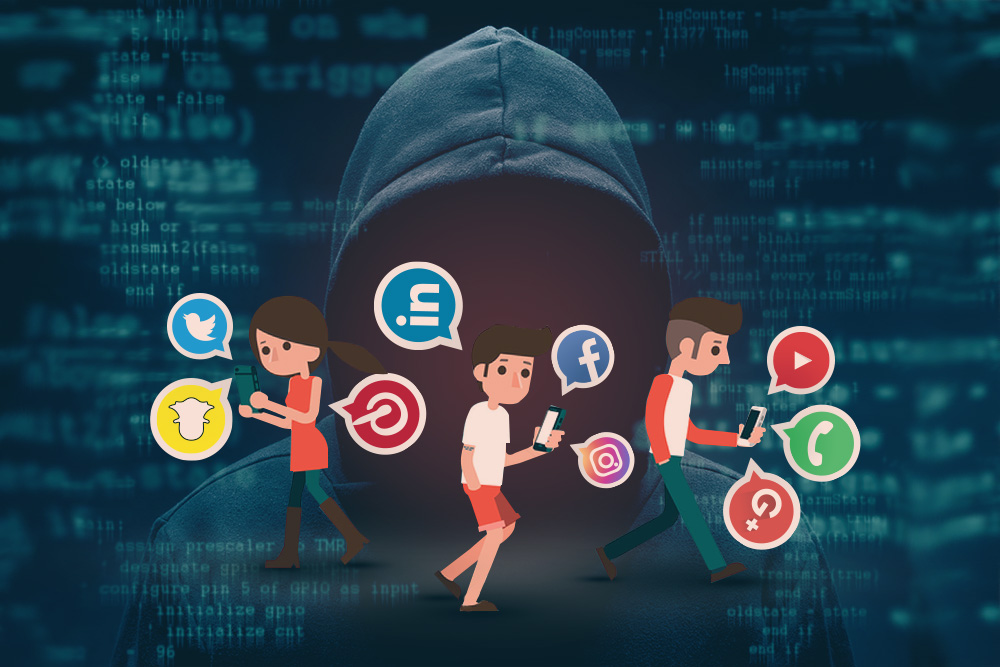
Cybersecurity: How Social Media Reshaped The World In 10 Years
When Mark Zuckerberg developed Facebook, he intended it initially to connect only a couple of friends in his university.
Ten years later, Facebook has reached and connected almost 2 billion monthly users all over the planet, crossing geography, social status, culture, and religion.
Now, Facebook has emerged as a medium that makes a total difference to how people communicate, give opinions, promote their views and ideas, and even influence society.
However, in the past 5 years, people have also seen how Facebook and other social media platforms can unleash negativity. This includes spreading fake news and other things that may be dangerous for the security of the users, especially when interactions become less personal as these platforms grow.
Social Media as a Tool for Empowerment… or Not
Netizens who are shy or socially awkward suddenly feel empowered and start to immerse with the online community. It is also becoming quite noticeable that social interaction among people has changed. People have started to become less able to deal with interpersonal meetings because they can conveniently hide behind their virtual avatars.
There are also growing concerns about “oversharing.” Many Facebook users tend to give out too much information about themselves, their families, their activities, and their lives without knowing that they are giving a lot about themselves to potential cybercrimes.
As Social Media Grows, so Are the Risks Connected to It
Facebook users who overshare are more at risk of identity theft, according to . A research by the Philippine National Police-Anti-Cybercrime Group (PNP-ACG) claims this is one of the top cybercrime cases filed in 2016 with 288 cases as compared to 101 in 2015 and only 61 in 2014.
Cybercriminals will steal users’ information using social engineering. They construct fake accounts and establish trust with their possible prey over time. Once this trust is built, they will ask them to give out information, such as banking details and passwords, and commit evil deeds against the victims.
Cybercriminals can also manipulate Facebook users to click on links that might introduce malware to their computers. URLs can be altered to make it difficult to identify whether the links are legit or malicious.
Social media users should always remember that any information they post online is considered public. They need to always be careful about their status updates, and avoid revealing their whereabouts. Why? Because potential burglars may break into their homes if they know they are away in Japan for a holiday vacation. Making public their activities, and revealing their kid’s names, schools and birthdates may also compromise their family’s safety.
Facebook and Cybersecurity
Though Facebook and other social networking sites continue to fortify their measures to ensure cyber security, users must always keep in mind that they are the ones in control.
As the world becomes more interconnected, the chances of people making threatening moves against us will also increase. It is an intelligent move to exercise caution where Facebook and social media is concerned. Netizens must practice restraint and common sense.
Like other social media sites that came before it, Facebook has changed how we view the world by connecting people and creating social changes. However, it can also be used against us. It helps to be careful.
Recent Posts
- How Does GPON Improve Network Efficiency?
- What Are The Advantages Of GPON?
- What Are The Benefits Of IT Outsourcing?
- What's The Deal With Ransomware Attacks?
- Are GPON Providers Widely Available?
- What's GPON's Impact On Bandwidth?
- Why Is Multi-Factor Authentication Important?
- How To Ensure Data Privacy Compliance?
 Blogs
Blogs Infographics
Infographics Videos
Videos Podcasts
Podcasts Case Studies
Case Studies Call For Quote
Call For Quote